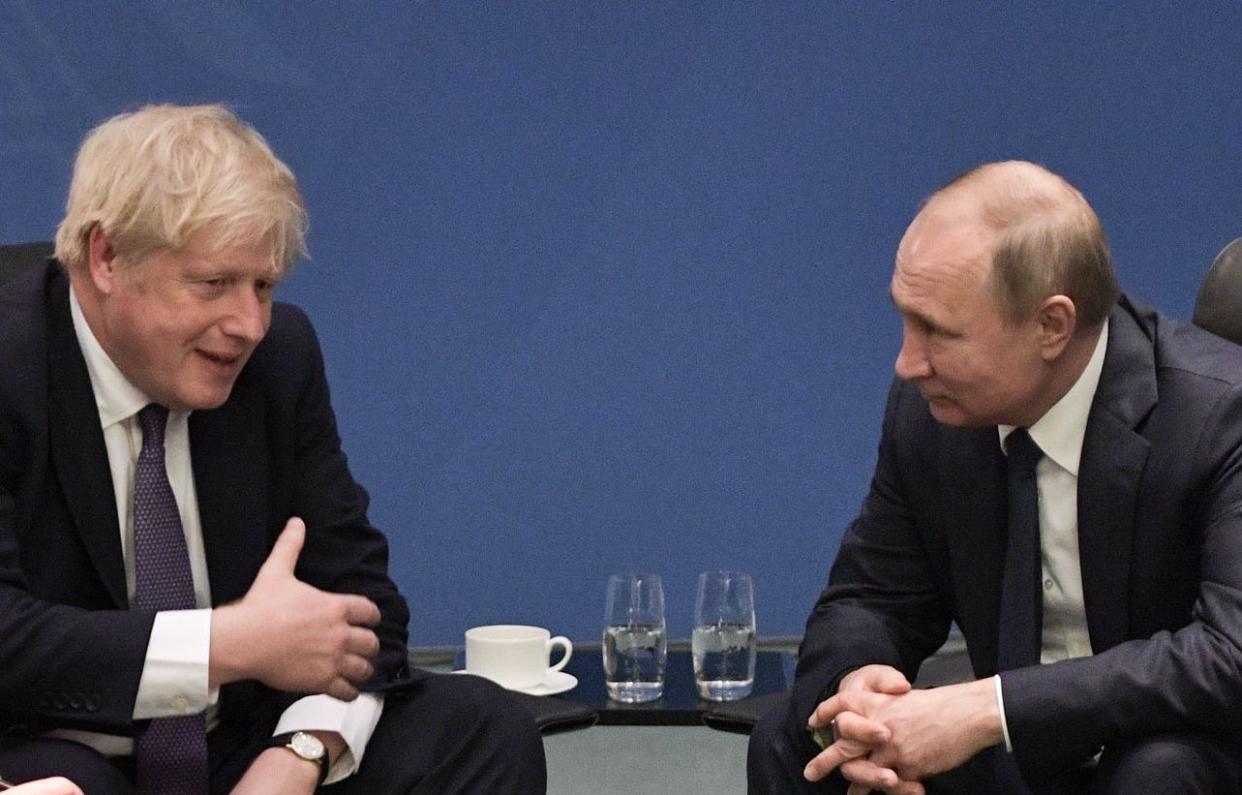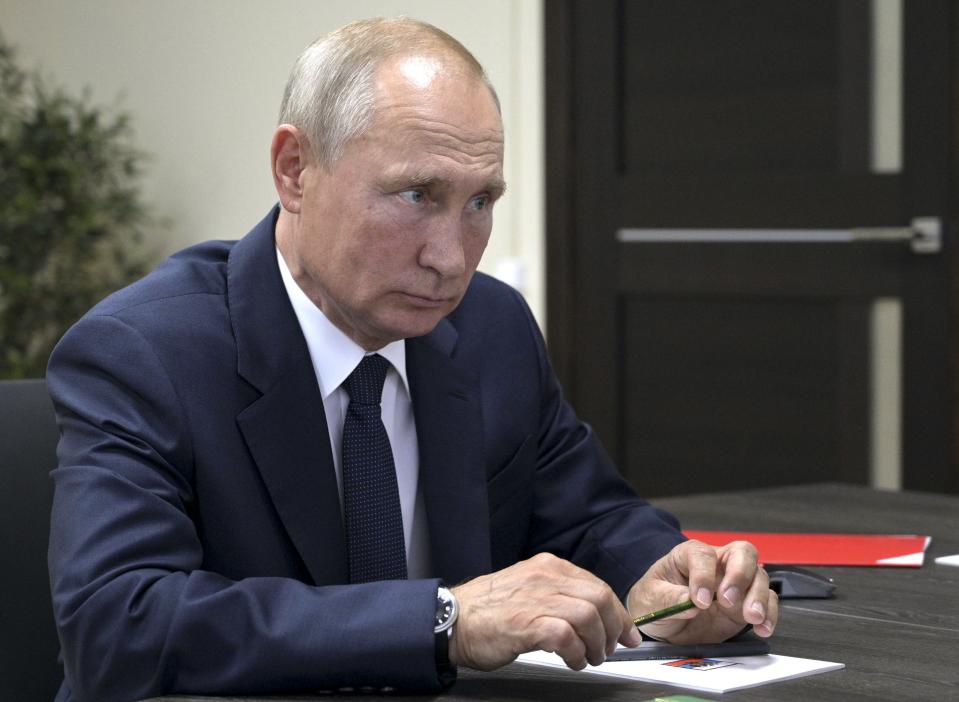Russia report: Seven revelations from the damning document that was delayed for nine months

The House of Commons intelligence and security committee has published its eagerly anticipated report on Russia’s influence in the UK.
The report had been in existence for nine months, having been submitted to Boris Johnson on 17 October, but was only released on Thursday.
After it was finally published, here are seven revelations...
1. ‘Reticent’ governments took their ‘eye off the ball’
The report says it has been “clear for some time that Russia under [president Vladimir] Putin has moved from potential partner to established threat, fundamentally unwilling to adhere to international law”.
It says the 2006 murder of Alexander Litvinenko in London and annexation of Crimea in 2014 were “stark indicators” of this.
“We therefore question whether the government took its eye off the ball because of its focus on counter-terrorism: it was the opinion of the committee that until recently the government had badly underestimated the response required to the Russian threat – and is still playing catch-up.”

The report says the government has now begun to take a more “assertive approach” towards Russia, as compared to previous administrations.
It states: “The UK has historically been reticent in attributing cyber attacks – as recently as 2010, this committee was asked to redact mention of Russia as a perpetrator of cyber attacks, on diplomatic grounds.”
It says the government’s approach changed in November 2017, when Theresa May was prime minister.
2. UK is a ‘top target’ only behind US and NATO
The report states “Russia considers the UK one of its top Western intelligence targets”.
“While we may not experience the level and type of threat that countries on Russia’s borders suffer, witnesses have suggested that we would sit just behind the US and NATO in any priority list.
“This is likely to be related to the UK’s close relationship with the US, and the fact that the UK is seen as central to the western anti-Russian lobby.”
The report goes on to say the UK is “clearly a target” for Russian disinformation campaigns and political influence operations “and must therefore equip itself to counter such efforts”.
It also details how GCHQ – the UK’s intelligence, cyber and security agency – had said Russian actors “orchestrated phishing attempts against government departments”, including the Foreign Office, during the early stages of the investigation into the Salisbury attacks in 2018.
3. Government didn’t look at Brexit referendum allegations
The report acknowledges “widespread public allegations that Russia sought to influence” the 2016 EU referendum.
However, it says the government did not provide “any post-referendum assessment of Russian attempts at interference”.
This, the report states, is in “stark contrast” to the US handling of allegations of Russian interference in the 2016 presidential election. It points out an intelligence community assessment was produced within two months of the vote.
Meanwhile, the report doesn’t seek to judge whether Russia did influence the referendum vote, saying it would be “difficult – if not impossible – to assess”.
4. Putin allies ‘integrated into UK business and social scene’
Russia’s “elite” and those close to Putin have put money into so many different sectors, particularly in London, that any government measures against them would be “damage limitation”, says a section in the ISC report.
“Russian influence in the UK is ‘the new normal’,” it states.
“There are a lot of Russians with very close links to Putin who are well integrated into the UK business and social scene, and accepted because of their wealth.
“This level of integration – in ‘Londongrad’ in particular – means that any measures now being taken by the government are not preventative but rather constitute damage limitation.”
5. New legislation needed to tackle foreign spies
The report warns: “Russia poses a tough intelligence challenge and our intelligence agencies must have the tools they need to tackle it.
“In particular, new legislation must be introduced to tackle foreign spies: the Official Secrets Act is not fit for purpose and while this goes unrectified the UK intelligence community’s hands are tied.
“More broadly, we need a continuing international consensus against Russian aggressive action.”
6. Social media companies ‘not playing their part’
Social media companies are criticised in the 50-page document for failing to tackle the spread of disinformation.
It says: “We note that – as with so many other issues currently – it is the social media companies which hold the key and yet are failing to play their part.
“The government must now seek to establish a protocol with the social media
companies to ensure that they take covert hostile state use of their platforms seriously, and have clear timescales within which they commit to removing such material.”
Those companies which “fail to act” should be “named and shamed” by the government, the report says.
7. Paper and pencils are keeping UK elections safe
One positive is the report’s assurances that UK elections are safe from interference... thanks to its paper and pencils-based voting system.
It states: “We have been informed that the mechanics of the UK’s voting system are deemed largely sound: the use of a highly dispersed paper-based voting and counting system makes any significant interference difficult, and we understand that GCHQ has undertaken a great deal of work to help ensure that the online voter registration system is safe.”

 Yahoo News
Yahoo News 
